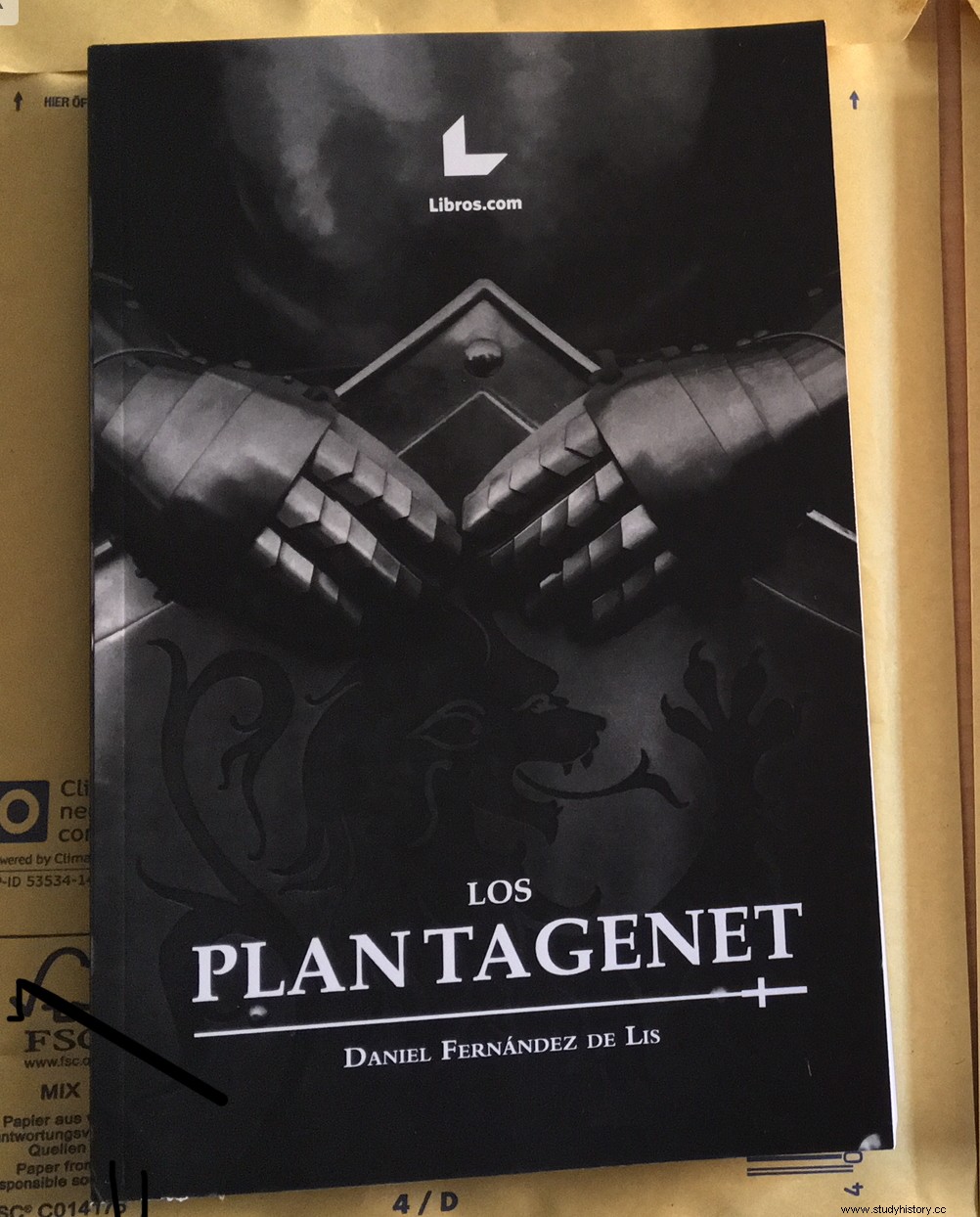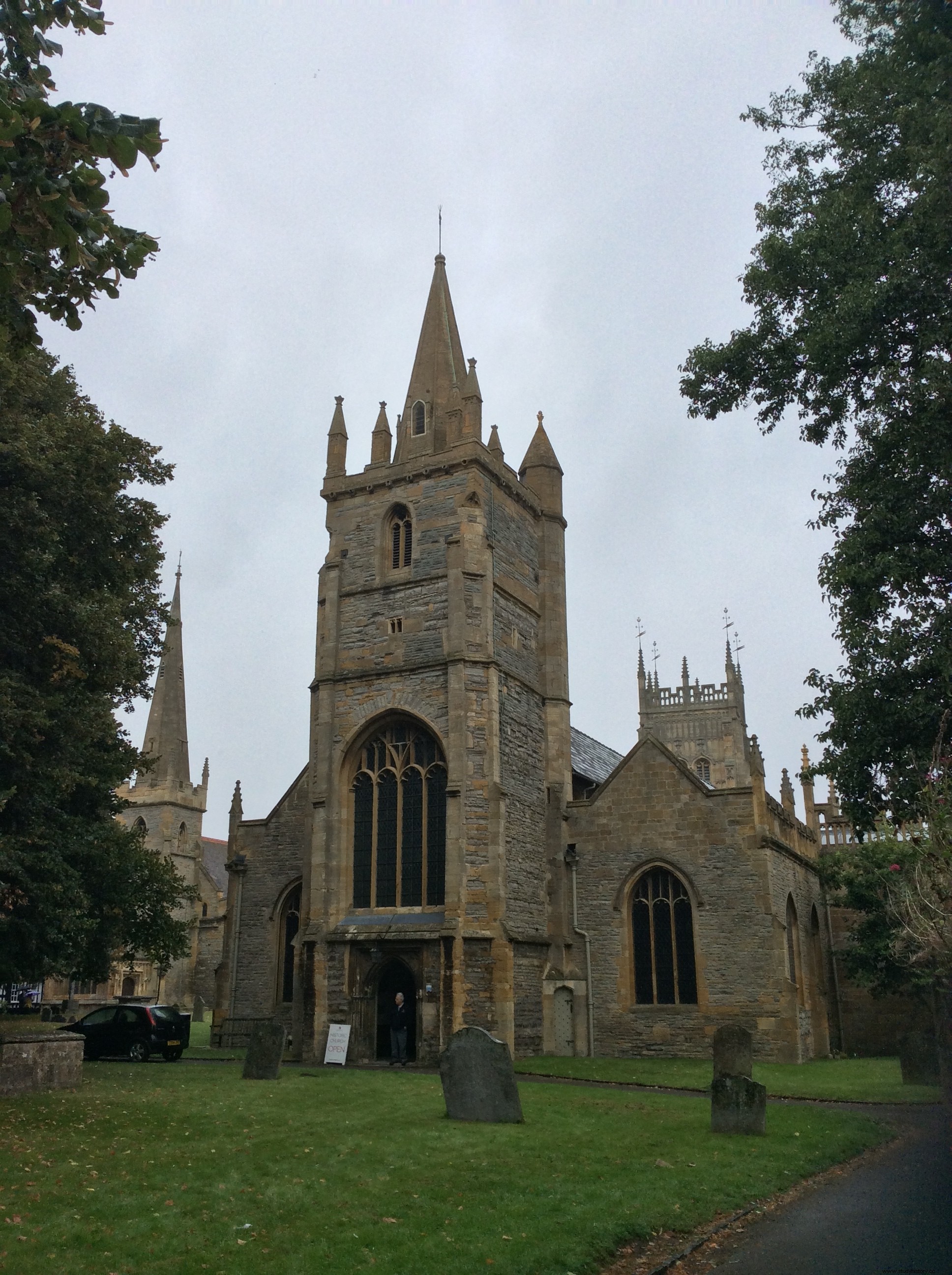 Entry taken from the book The Plantagenets
Entry taken from the book The Plantagenets
When I first read about Simon de Montfort's brief but important intervention in England in the second half of the 13th century, I thought it was a familiar name. It didn't take me long to remember what it sounded like:his father, also named Simon de Montfort, was the military leader of the so-called "Albigensian Crusade" against the Cathars in French Languedoc in the first half of the 13th century.
It is not the purpose of this article to talk about the history of the Cathars, about whose relationship with the Templars and the supposed lineage descended from Jesus and Mary Magdalene a lot of nonsense has been written lately. Suffice it to say that the beliefs of the Cathars posed a great threat to the "established power" of the Catholic Church and were exterminated by blood and fire by an army led by Simon de Montfort and with the approval of both the Catholic Church and the king of France However, not this Simon but his son of the same name the subject of this article.
After the Norman conquest of England, it was common for both French and English great lords to have titles, lands, and interests on both the mainland and the islands.
In the case of the de Montforts, they joined their French titles that belonged to them by birth in the Languedoc area, that of Earl of Leicester in England, as a consequence of the marriage of the grandfather of our protagonist.
Simon had a hard time accessing family titles in France, because he had older brothers. He finally agreed with his brother Amaury that he would relinquish his rights over the family territories in England, in exchange for Simon doing the same over those located in French territory.
The England Simon came to as Earl of Leicester had been the subject of a fierce power struggle for years between the kings and the great barons and lords of the realm. The problems had started during the reign of Juan sin Tierra, brother of Ricardo I and much less popular historically than his famous brother, the Lionheart.
However, the king nicknamed John the Landless reigned more and more decisive years in the history of England than Richard and all the kings of England from the 13th to the 15th centuries until the arrival to the throne of the Tudor dynasty were descendants of the reviled John and not his popular brother.
One of the most important events in English history occurred during the reign of John, and much to his dismay. The great lords of the realm were beginning to tire of supplying troops and money for the wars that their kings decided to wage against the French, Scots, and Welsh mainly, with the barons getting nothing in return but loss of men and money. Therefore, they decided to put conditions on their support for the king. After many problems and misunderstandings, King John was forced to sign a document in 1215, the so-called Magna Carta that limited the prerogatives of the king and forced him to rely on his great lords to direct the destinies of the kingdom.
John's problems were compounded for his son Henry III. He was a weak monarch and already in 1258 there was a first attempt to limit the royal authority, by appointing a council of great lords who were the ones who actually exercised power, although this attempt failed after only two years as a result of the interim struggles of Council members and their lack of vision of the kingdom's global interests.
Henry III briefly regained power, but when he summoned Parliament several times to request funds for his expenses, he was again opposed by the great lords who understood that such money It would be used to meet the personal expenses of the king, his family and close friends and outside the interests of the kingdom.
On this occasion, as early as 1263, the leader of the baronial opposition was the Earl of Leicester, Simon de Montfort. The rebels controlled part of the English territory (including the city of London), and when the armies of both sides met at Lewes (1264), still outnumbered, Simon de Montfort's army won. As a consequence, the king was confined to London and a council of nine barons was appointed, led by de Montfort, who served as de facto king. In addition, the king's eldest son was held hostage in Dover Castle, to prevent any maneuver by his father against the new regents of the kingdom. De Montfort did not make the mistake of the previous advice and personally and directly exercised power. He was in everything except his name the true king of England.
However in 1265 King Henry's son, the future Edward I, escaped from captivity and raised an army that met de Montfort's at Evesham on 4 August. De Montfort was defeated and killed in battle, ending two years of rule in which for the first time in the history of England a single person held the power of a living king and above him, who was captive in St Paul's Cathedral in London. A blog entry deals with the controversy as to whether this period can be considered as the origin of English parliamentarism.
After his defeat, de Montfort took refuge in Evesham Abbey, but Prince Edward (in an early display of his treatment of his enemies when he became King of England faced Llywelyn Ap Gruffyd in Wales or William Wallace in Scotland) dragged the Earl of Leicester out of the abbey, executed him, quartered him, and threw his remains into the nearby river so that there could be no martyr's grave to attract followers de Montfort.
-

- Evesham Abbey, where Simon de Montfort was taken prisoner and executed
To those who want to know more about Simon de Montfort and, in general, about the History of England in the twelfth to fifteenth centuries, I recommend the various novels written on the subject by Sharon Kay Penman , commented on my reading blog, although unfortunately not all of his work has been translated into Spanish.
Fonts| Dan Jones. Plantagenets, The Kings Who Made England.. Ed. William Collins, London.1st edition (2103)
Peter Ackroyd. A History of England Volume I (Foundations). Ed. Mcmillan, London. 1st edition (2011)
Roy Strong. The Story of Britain. Ed. Pimlico, London. 1st edition (1998)
Simon Schama. A History of Britain. BBC Worldwide Limited, London. 1st edition, fourth printing (2000)
Derek Wilson. The Plantagenets, The Kings That Made Britain. Quercus Edition Ltd., London. Ebook edition (2014)
